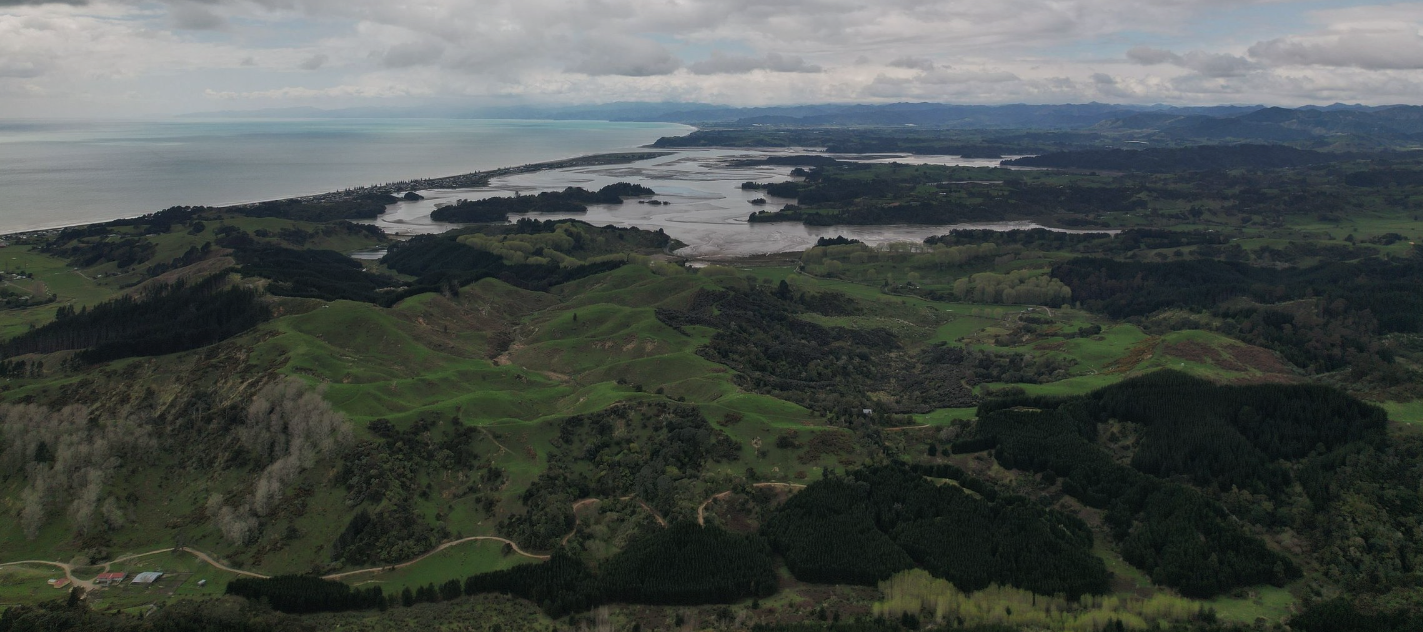
Korehāhā Whakahau

“Mā te ngaruru ō ngā whenua maru ō Ngāti Awa, ka noho momoho nga taonga koiora, taonga tuku iho, hei oranga whānui mō ngā whakatipuranga.”
“As the lands of Ngāti Awa flourish, opportunities abound for future generations to enjoy their ecological, environmental, and cultural uniqueness.”
— Te Kei Merito
Korehāhā Whakahau is the first Iwi led Predator Free 2050 project, seeking to eradicate possums from 4,700ha of land within the rohe of Ngāti Awa - including Whakatāne, Ōhope, and Ōhiwa – without using toxins. We aim to do this by 2025.
An innovative and aspirational project, Korehāhā Whakahau seeks to achieve social, environmental and economic outcomes in our community through job creation that has kaitiakitanga at its centre.
Over a five-year period, the project will contribute to the protection and enhancement of te taiao and establish career pathways that build the capacity and capability of Ngāti Awa to be kaitiaki for the whenua and its resources.
Our overall goal is to build a biodiversity workforce, who are skilled and connected to the land, to undertake pest eradication to support the restoration and enhancement of the taiao (environment).

Kei hea te rohe ō
Korehāhā Whakahau
Korehāhā Whakahau project area
He aha ai.
Why this project is important.
He rākau morimori, e kore e taea te piki – You cannot climb a bare tree.
In years gone by Pōhutukawa forests flourished along our coastline – a clear sign that the whenua was healthy! Over the years, however, the impact of humans has increased and the Pōhutukawa are no longer so numerous, nor so flourishing. A clear sign that our lands are sick and under pressure.
We all know that we must do something. We see it. We feel it. We know it.
So here at Korehāhā Whakahau, our goal is to eradicate possums from our project area as a way of restoring and enhancing the taiao. But why possums?
Introduced into Aotearoa in 1837, possums were released in attempt to develop a fur industry in the country. Up until 1922, more than 30 batches were imported, and these possums and their descendants were liberated at about 464 places.
Ongoing liberations through private individuals and acclimatisation societies continued to boost numbers and even when it became illegal to bring in possums, trappers continued to do so until the 1980s. Possums adapted well to the fertile Aotearoa habitat and their natural rapid breeding rate meant the impact on our taiao was immense.Additionally, the fact that possums can act as carriers of bovine tuberculosis places our country’s agriculture industry at risk.
Over the past 40 or so years, community groups and Government departments have worked to knock down the numbers but eradication was never considered to be a possibility - until now! Advancement in technology and understanding is now at at point that we, here at Korehāhā Whakahau, believe that we can achieve eradication in our project area by 2025. And, we don’t even need to use toxins.
He aha a Ngāti Awa e mahi ana ai i tenei kaupapa
Why is Ngāti Awa undertaking this work?
Korehāhā Whakahau is administered by Te Rūnanga o Ngāti Awa (Rūnanga), in partnership with Predator Free 2050 Limited and Te Papa Atawhai (DoC).
The Rūnanga is recognised by the Crown as a representative of Ngāti Awa and is responsible for representing the collective interests of the tribe, including managing its taonga and resources.
With origins stretching back to Maui through Tiwakawaka and Toi Te Huatahi as well as the Mataatua waka, Ngāti Awa is the mana whenua of the Whakatāne, Ōhope and Ōhiwa rohe.
As part of this role, we are committed to being kaitiaki of this whenua and ensuring we leave our rohe in a healthier state for those who come after us – our children, our grandchildren and beyond.
And we know that this approach not only benefits Ngāti Awa but also those who chose to make their home within our rohe. Through Korehāhā Whakahau, we are working to build a better future for our whole community and our next generations.
Let’s work together to make our area possum free!
Ngā kaimahi
Our team
In addition to eradicating possums, one of the key goals of Korehāhā Whakahau is to develop a biodiversity workforce from within Ngāti Awa.
Therefore, our employment strategy when hiring our field team was much different from what you would normally find in other projects. We weren’t necessarily after the most skilled or experienced people, rather we were after those who felt connected to the whenua and Ngāti Awa.
Since launching our project in 2020, we’ve grown our field team to 10 Kaimahi, or field workers, and a Kaiarahi, or leader. Before starting with us, many of the field team were either unemployed or under-employed but our focus has been to provide extensive training and development opportunities, both professionally and personally, to grow their skill base and confidence. Our Kaimahi are continuing to grow their expertise while undertaking their core responsibilities so professional training still remains an ongoing focus.
The field team is also supported by a project manager, operations manager, technical experts, administrators, researchers and communication and engagement staff with overall leadership from the Manager Taiao at Te Rūnanga o Ngāti Awa. Currently, the Korehāhā Whakahau team is made up of 18 people, who are all working together to protect and enhance te taiao.



